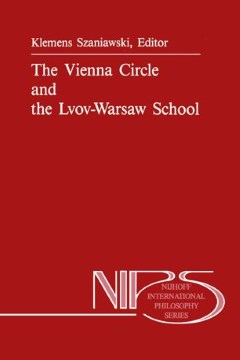Repository | Book | Chapter

(1989) The Vienna circle and the Lvov-Warsaw school, Dordrecht, Springer.
One of the most influential achievements of Kazimierz Ajdukiewicz, a prominent representative of the Warsaw-Lemberg School, is an idea of syntactic description by means of logical types, underlying the theory of grammar later called categorial grammar. Many essential components of this idea can be found in earlier logico-linguistic speculations of Frege (functor-argument analysis, compositional semantics), Husserl (categories as substitution classes), Russell (types in syntax and ontology), and others; Ajdukiewicz (1935) acknowledged his new indebtedness to Stanislaw Lesniewski, whose work in deep foundations of mathematics contributed so much to the theory of typed languages. We may also presume that Ajdukiewicz's attempt to elaborate a universal method of syntactic description was not quite independent of the goals and results of logical syntax, a theory promoted and highly advanced by Rudolf Carnap. In the fifties, both Carnap and Ajdukiewicz influenced Bar-Hiller's investigations in the formal theory of categorial grammars and their applications to natural language (cf. Bar-Hillel (1953), Bar-Hillel et al. (1960)). In general, as clearly demonstrated by Hiż (1967) the principles of categorial grammar have much in common with the doctrine of logicism, a philosophical orientation guiding the major enterprises of the Warsaw-Lemberg School and the Vienna Circle
Publication details
DOI: 10.1007/978-94-009-2829-9_7
Full citation:
Buszkowski, W. (1989)., Principles of categorial grammar in the light of current formalisms, in K. Szaniawski (ed.), The Vienna circle and the Lvov-Warsaw school, Dordrecht, Springer, pp. 113-137.
This document is unfortunately not available for download at the moment.



